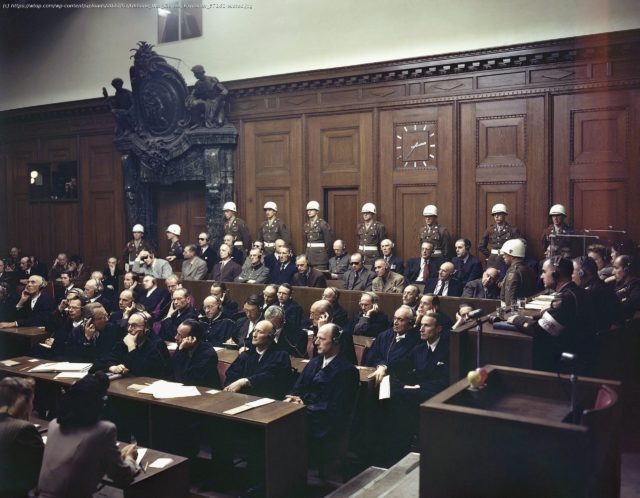Each day searing stories pour out of Ukraine: A maternity hospital bombed in Mariupol. A mother and her children killed as they fled Irpin in a humanitarian…
LVIV, Ukraine (AP) — Each day searing stories pour out of Ukraine: A maternity hospital bombed in Mariupol. A mother and her children killed as they fled Irpin in a humanitarian corridor. Burning apartment blocks. Mass graves. A child dead of dehydration in a city under siege, denied humanitarian aid. Such images have contributed to a growing global consensus that Russia should be held accountable for war crimes in Ukraine. “The world’s strongmen are watching like crocodiles… We have to show tyrants around the world that rule of law is stronger than rule of gun,” said David Crane, a veteran of numerous international war crime investigations. Even as the conflict rages, a vast apparatus is being built to gather and preserve evidence of potential violations of international laws of war that were written after World War II. Less than a month after Vladimir Putin’s order to drop the first bombs on his neighbor, the United States declared that Russian forces were committing war crimes in Ukraine. But it remains far from clear who will be held accountable and how. Here’s a look at what war crimes are and what options exist for bringing those responsible to justice. WHAT ARE WAR CRIMES? A war crime is a violation of the laws of war. While the architecture of international criminal law has been built over decades, the concept is straightforward. “If there’s no military necessary reason to target something, it’s a war crime. If you’re just shooting like `Mad Max Thunderdome’ then it’s a war crime,” said Crane. The core principles of international humanitarian law are enshrined in the Geneva Conventions, the bulk of which came into force after World War II, and the Rome Statute, which established the International Criminal Court in 1998. They provide protections for civilians in times of war, as well as for prisoners of war and the wounded. Possible war crimes that have been reported in Ukraine: widespread destruction of people’s homes, firing on civilians as they evacuate through safe corridors, targeting hospitals, using indiscriminate weapons like cluster bombs in civilian areas, attacks on nuclear power plants, intentionally blocking access to humanitarian aid or basic needs like food and water. But intention matters. Destroying a hospital alone is not evidence of a war crime. Prosecutors would have to show that the attack was intentional or at least reckless. Crimes against humanity, which have been codified in the statutes of a number of international criminal tribunals, occur when a state launches a widespread or systematic attack against civilians involving murder, deportation, torture, disappearances or other inhumane acts. The mass mobilization of Ukrainian citizens to fight off Russian invaders may complicate the case against Putin. Russia could try to use the blurred distinction between civilian and combatant as a justification for attacks on civilian areas. Some examples of recent convictions: In 2012, the International Criminal Court convicted warlord Thomas Lubanga Dyilo of drafting and enlisting children under 15 years old to fight in an ethnic conflict in the Democratic Republic of Congo. He is serving a 14-year sentence. —Radovan Karadžić, president of the Republika Srpska, a self-proclaimed Serb republic within Bosnia, was convicted of crimes against humanity, war crimes and genocide — most notoriously, the murders of more than 7,000 people in Srebrenica in 1995. He is serving a life sentence imposed by the International Criminal Tribunal for the Former Yugoslavia. —Jean-Paul Akayesu, a mayor convicted of genocide, crimes against humanity — including rape — and incitement to commit genocide in the 1994 Rwandan ethnic bloodbath. The International Criminal Tribunal for Rwanda sentenced him to life in prison. WHAT IS THE INTERNATIONAL CRIMINAL COURT? The International Criminal Court, located in the Hague, can prosecute individuals for war crimes, crimes against humanity, genocide and the crime of aggression.




![Czy Joe Biden ma szansę obrobić straty po debacie CNN? [OPINIA]](http://nhub.news/wp-content/uploads/2024/06/thumb7fa1ff25146ac9995e9686b2dcc7bb5e-100x75.jpeg)

